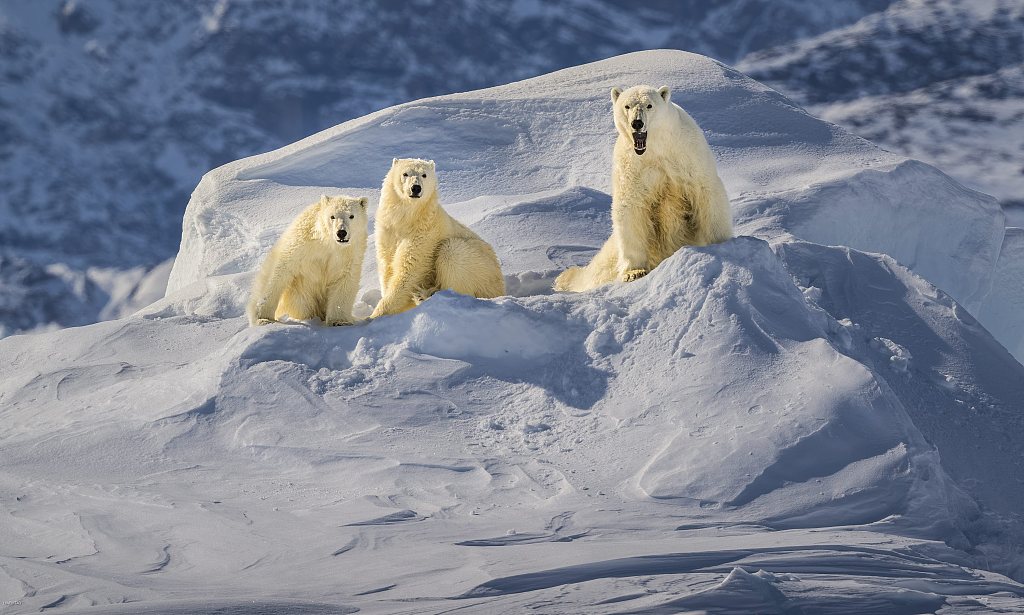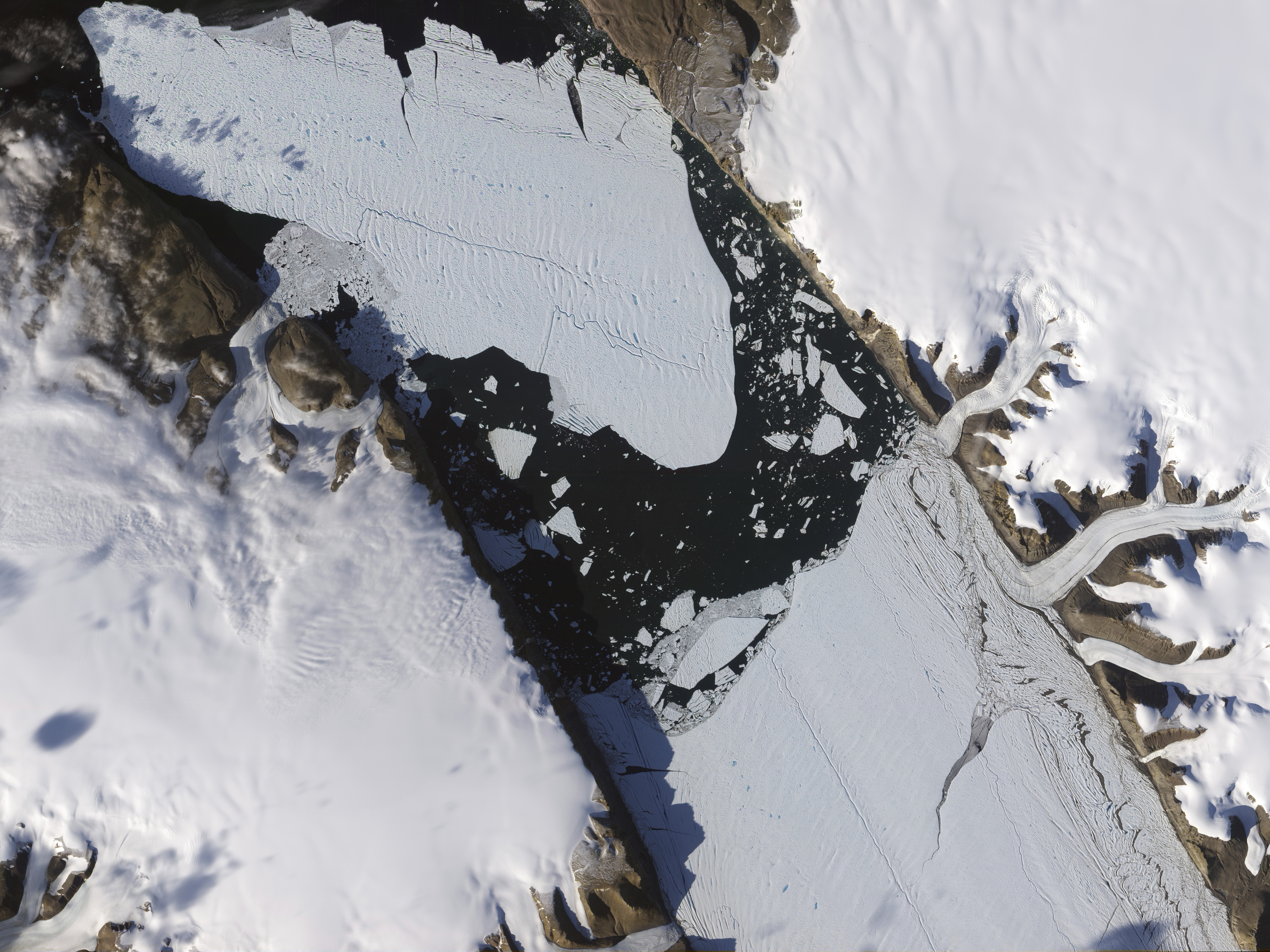
Three polar bears are seen at Baffin Island in Canada. /CFP
Three polar bears are seen at Baffin Island in Canada. /CFP
Polar bears in Greenland have shown considerable flexibility as climate change forced them to drastically adapt their diet and habitat, but the current shift could still prove a daunting challenge, researchers said Wednesday.
At the end of the last ice age, some 12,000 years ago, "when temperatures went up, sea ice went down," it reduced the polar bears' habitat and forced them to move further north, Michael Westbury, co-author of a recent study on the subject recently published in the journal Science Advances, told AFP on Wednesday.
Westbury also noted that the start of the interglacial period, rising temperatures led to a decline in the bear population.
However, despite concerns about the survival of the species – which has been classified as vulnerable since 1982 – "polar bears are relatively okay," the lecturer at the University of Copenhagen said.
"They could be a bit more adaptable than we previously thought ... it's a little bit of a surprise," he added.

Image provided by NASA Earth Observatory shows a piece of the Petermann Glacier cracked in Greenland. /AP
Image provided by NASA Earth Observatory shows a piece of the Petermann Glacier cracked in Greenland. /AP
Scientists recently identified a new population of polar bears in south-east Greenland, which uses the chunks of ice breaking off from the region's freshwater glaciers to hunt seals, whereas the predators usually use the melting ice pack to hunt their preferred prey.
This group, which is different from those of West Greenland, do not live in ideal conditions, Westbury stressed, but "they can adapt their food, and that leads to other changes."
At the same time, the current acceleration in global warming is putting the animals in an unprecedented situation.
"The prediction would be they have to keep shifting further and further north. But then once there's no way to go, then that could be very detrimental," Westbury said.
This situation is made more complicated for polar bears since the rapid change in temperatures leave the polar bears less time to adapt and modify their behavior.
Source(s): AFP



